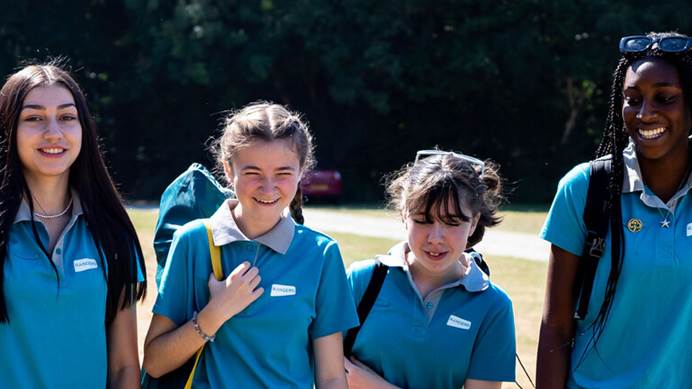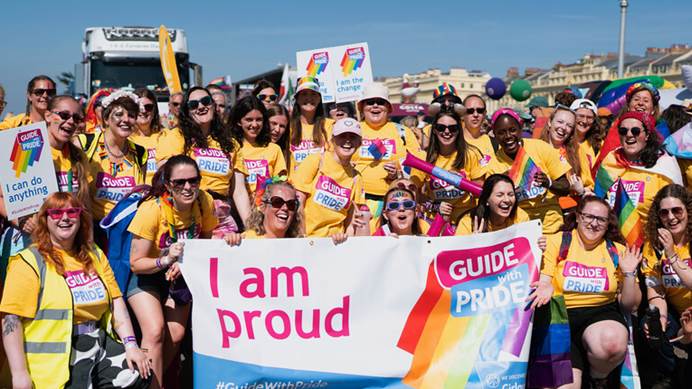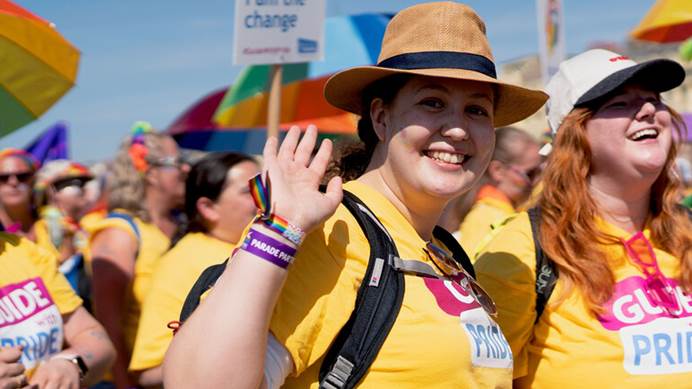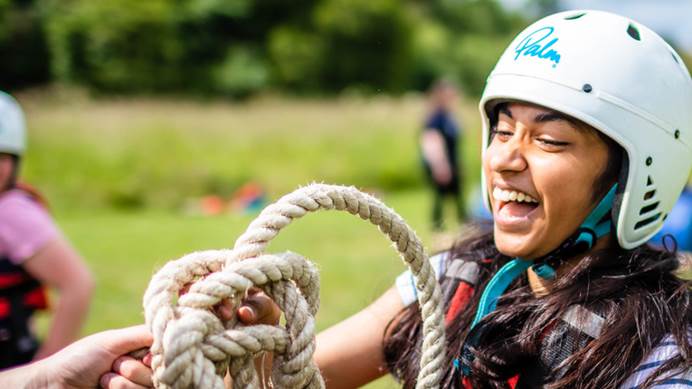My pledge for diversity and inclusion
Josie Crossley, lead volunteer for inclusion and reach, reflects on our new diversity and inclusion plan, and makes a pledge for the future
Josie is one of the volunteers who have worked with us to put together our new diversity and inclusion strategic plan.
Here, she reflects on what it was like to work on this project, and how it has helped her to prioritise inclusion as a Girlguiding volunteer.
My role as a volunteer working on diversity and inclusion
My role as Lead Volunteer for Inclusion and Reach was brand new in January 2020, and what an exciting (almost) 18 months it has been! Alongside other projects, I’ve been working with the inclusion staff team to put together our inclusion plan. The plan is for Girlguiding’s staff and members and sets out what we need to do to make Girlguiding the go-to charity for all things inclusion.
But did we just pull these actions out of thin air? Of course not! I think most of us volunteers are probably aware that we aren’t as inclusive as we want to be. This is why just over a year ago, Girlguiding asked an external consultant to conduct an audit and dig deeper into what we were doing well and not so well. I’d never been involved in research projects on this scale before, so it was an eye-opening process.
As a lead volunteer, I feed into our work at HQ from a member’s perspective. This meant that when we were looking at the feedback from the audit and deciding on the direction of the inclusion plan, it was my job to ensure that we centred the voices of our girls and volunteers, especially those from marginalised and underrepresented groups. I want our members to feel well-supported to achieve our ambitions for inclusion. So, I had to consider what resources and knowledge volunteers, girls and even parents might need to make Girlguiding more inclusive.
It definitely helped that I’ve had quite a few different hats throughout my time in Girlguiding, from young leader to assistant leader, and from district commissioner to region growth lead. I’m also fortunate enough to have just recruited nine other volunteers to help, too! This fantastic team of inclusion advisers each have different specialisms, for example race inclusion, LGBT+ inclusion and disability inclusion – and they bring a huge amount of professional and lived experience to their roles.
What I learned from the research
You may already have seen the reflective resource that has launched alongside the inclusion plan, and I definitely recommend using it. I found that dedicating some quiet time to working through the questions helped me to process what I had read, and I want to share my reflections with you.
The audit findings give a clear picture of what people from marginalised groups are experiencing across the organisation, but it’s fair to say that it isn’t an easy read. I’ve been a proud Girlguiding member for the majority of my life (almost 20 years now) and can honestly say that I wouldn’t be where I am now without it. So, I found it hard to come to terms with the fact that many fellow members hadn’t experienced the sense of belonging and the supportive environment that I have always associated with guiding.
I found it useful to reflect on my own Girlguiding experiences and how they may have been different in someone else’s shoes. What if I hadn’t been allowed to take part in an activity because of who I am? What if I had experienced discrimination from other members? Would I have stayed in the organisation as long as I have, or even joined in the first place?
I was surprised at how often we heard that girls and young women from marginalised groups felt that leadership ‘wasn’t for them’. I’ve always been conscious of the fact that our membership isn’t as diverse as the society we live in, particularly when you look further up the organisation. But it was disappointing to hear that the lack of diversity in decision-making roles was preventing girls from even considering leadership as an option for them. It made me want to do more to ensure that girls from all backgrounds can access leadership opportunities so that they can picture themselves as Girlguiding’s future decision-makers.
Although the findings were difficult to hear at times, I knew it was important for us to be honest with ourselves about where we are now so that we can make positive change. And a key part of making the inclusion plan a success is about taking the time to listen and learn. I’ve learnt so much since starting my role and I am still learning in every meeting, discussion and training. I’ve learnt how some of our traditional meeting activities can make people feel excluded.
For example, our end of meeting songs, like Brownie Bells, are often Christian in nature and this can make members of other faiths or no faith uncomfortable. I’ve now changed the words for my unit so nobody feels left out – a simple thing to do but that can make a big difference to the girls and volunteers.
I’ve learnt what it takes to be a good ally and give people a voice. And I’ve learnt how to encourage people from all levels of the organisation to think about inclusion. For me, this ranged from doing the Black History Month unit meeting activity with my own Brownie unit to developing an e-learning for volunteers about supporting members with their mental health.
Even though it’s challenging, every volunteer can do something to help
Learning can sometimes push us out of our comfort zones. However, I believe it’s necessary for every single one of us to make a commitment to learn how to be more inclusive. This will help us make Girlguiding a safe place where people feel welcome and free to be themselves. It might just be making a small tweak to your day-to-day guiding, such as finding new words for Brownie Bells, or something more significant like stepping into an inclusion advisor role. Everyone is on their own journey and we might not always get things right. But what matters is that we don’t shy away from our mistakes and we keep learning.
Inclusion is at the heart of our organisation but if we want to truly be for all girls, we have to make Girlguiding a place where people feel they belong. We all need to work together to achieve our ambitious plan. Whether you are the chief guide, a county commissioner or a unit helper, we all have a role to play.
So we are asking members to make a pledge about what you can do to help make Girlguiding a more inclusive place. Your pledge could be quite personal, so you are welcome to keep it to yourself, but I wanted to share mine with you:
I pledge to create space for the voices of marginalised members within my role as Lead Volunteer so that we can constantly listen, learn and adapt.
What will you pledge?



